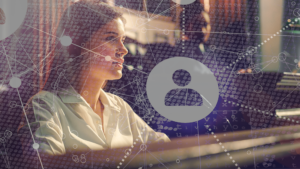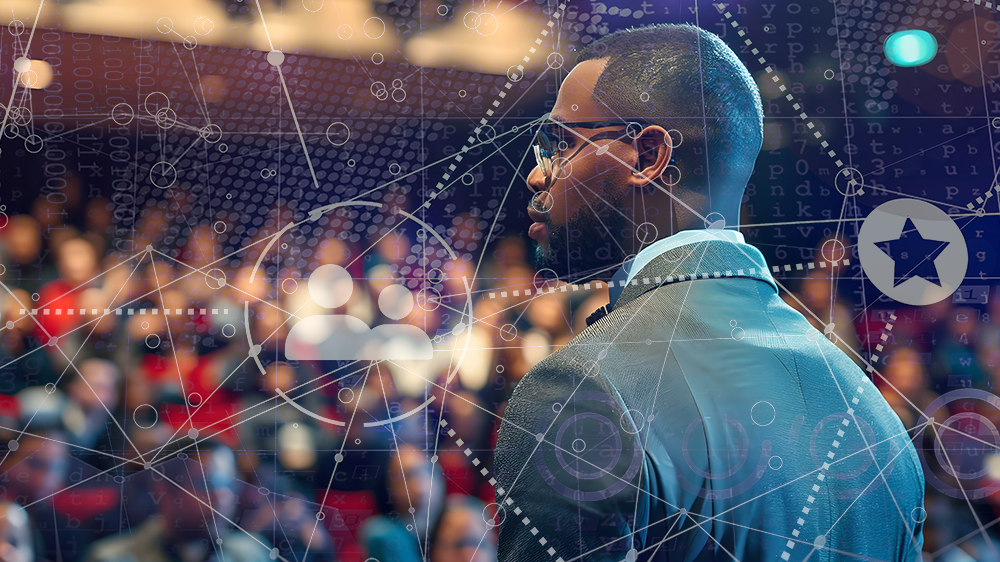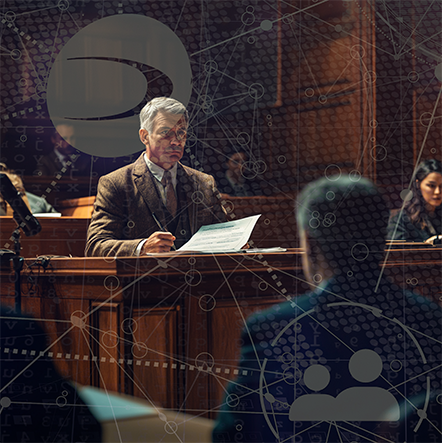Introduction
In complex brain injury litigation, attorneys often face challenges when attempting to demonstrate the extent of cognitive and emotional impairments resulting from a traumatic brain injury (TBI). For defense attorneys, the task becomes even more intricate as they must respond to claims and effectively dismantle arguments regarding long-term cognitive and psychological impacts. In this context, neuropsychology expert witnesses provide indispensable expertise. Their ability to objectively evaluate cognitive impairments, establish causation, and present clear, understandable testimony is critical to crafting a successful defense.
Neuropsychologists understand how brain function affects behavior, cognition, and emotion. This understanding is key in brain injury cases where attorneys must balance medical facts with legal strategy. For defense teams, neuropsychologists can provide objective evaluations that either counteract exaggerated claims or confirm the extent of injury, aiding in a fair outcome. This blog will explore how a neuropsychology expert witness can help win brain injury cases, focusing on the defense perspective.
The Role of Neuropsychology Expert Witnesses in Traumatic Brain Injury Lawsuits
Definition and Overview
Neuropsychology expert witnesses specialize in assessing brain function and its relationship with behavior. In legal cases involving brain injuries, they perform comprehensive evaluations that help attorneys understand how a brain injury—such as a concussion or TBI—impacts a person’s cognitive abilities and daily life.
Neuropsychologists are often asked to act as expert witnesses, assess cognitive deficits, evaluate emotional changes, and provide an opinion on whether the alleged injury has led to lasting impairments. Their testimony is particularly valuable in traumatic brain injury lawsuits, where cognitive decline, memory issues, and mood disorders are central to the plaintiff’s claims.
For defense attorneys, neuropsychologists are critical in offering an objective, data-driven perspective. They can help demonstrate that any impairments may be due to pre-existing conditions, unrelated injuries, or even malingering.
Qualifications of a Neuropsychology Expert
To serve as credible witnesses, neuropsychologists undergo extensive training. Typically, they hold doctoral degrees (Ph.D. or Psy.D.) and complete postdoctoral training in clinical neuropsychology. This specialization prepares them to conduct nuanced assessments of cognitive and behavioral functions, making them uniquely qualified to evaluate brain injury claims in a legal context.
Their qualifications, combined with a solid background in both forensic and clinical neuropsychology, make these experts indispensable in defending against claims of cognitive and emotional impairment. When a neuropsychologist testifies in court, they bring credibility that can sway jury opinions, particularly in high-stakes TBI lawsuits.
How Cognitive Assessment in Brain Injury Cases by Neuropsychology Expert Witnesses Strengthens Your Case
Standardized Tests and Assessment Tools
Neuropsychologists use an array of standardized tests to objectively assess cognitive functions, such as memory, attention, executive functions, and language skills. These tests help establish whether a plaintiff’s claims of cognitive dysfunction are consistent with the nature of the injury, the medical history, and the evidence presented.
For defense attorneys, the use of neuropsychological testing can be critical in determining whether the plaintiff’s cognitive complaints are legitimate or exaggerated. Neuropsychologists employ sophisticated measures to ensure that any cognitive impairments align with the severity and type of injury claimed. Moreover, these experts often identify cognitive strengths alongside impairments, providing a balanced view of the plaintiff’s overall cognitive functioning.
Establishing Causation Through Cognitive Testing
Establishing causation is fundamental to any brain injury case, especially in defense strategies. Neuropsychologists assess whether an injury caused specific cognitive deficits or if the plaintiff had pre-existing conditions that contributed to their current mental state. For example, a defense attorney may argue that the plaintiff’s cognitive impairments existed before the accident, potentially due to factors such as age, prior concussions, or unrelated mental health issues.
Neuropsychology expert witnesses use cognitive testing to isolate whether the brain injury is responsible for the alleged impairments. This helps defense attorneys challenge claims and potentially reduce liability, especially in cases where the plaintiff’s cognitive deficits may be unrelated to the incident in question.
Why Attorneys Need Neuropsychology Expert Witnesses for Brain Injury Lawsuits
Expert Testimony Simplifies Complex Medical Data
Brain injuries often involve extensive medical records, complex imaging, and intricate neurological data. A neuropsychologist’s ability to break down these technical details into understandable terms for a jury is essential for building a solid defense. Without expert testimony, attorneys may struggle to make the necessary connections between medical facts and legal arguments.
For defense attorneys, neuropsychologists can highlight inconsistencies in the plaintiff’s claims or explain why specific cognitive symptoms do not align with the documented injury. By simplifying complex medical data, neuropsychologists ensure that juries grasp the nuances of brain injuries without being swayed by emotional testimony.
Strengthening Legal Strategy with Objective Data
Incorporating a neuropsychology expert into your defense strategy offers an evidence-based approach that strengthens your position in brain injury lawsuits. Neuropsychologists provide objective data that challenge subjective accounts of cognitive decline. Their reports, based on standardized testing and clinical evaluations, offer a clear picture of whether the plaintiff’s impairments are as severe as they claim.
Moreover, neuropsychologists can assist defense attorneys in developing targeted cross-examinations of the opposing party’s medical experts. This can lead to revelations that reduce the credibility of the plaintiff’s case and provide grounds for a favorable defense verdict.
Legal Advantages of Neuropsychology Expert Testimony in Brain Injury Cases
Proving or Disproving Long-Term Cognitive Impairment
In many brain injury lawsuits, plaintiffs claim significant long-term cognitive impairments that affect their ability to work or engage in daily activities. A neuropsychologist’s evaluation can help determine the extent of these impairments and whether they are likely to persist.
Defense attorneys rely on neuropsychology expert witnesses to present data that may disprove exaggerated claims of long-term disability. By showing that cognitive impairments are either minimal or inconsistent with the alleged injury, defense teams can argue for reduced compensation or challenge the necessity of specific medical treatments or rehabilitation programs.
Addressing Defense Claims of Malingering
One of the significant concerns in brain injury litigation is the potential for malingering, where the plaintiff may exaggerate or fabricate symptoms for financial gain. Neuropsychologists use various tests specifically designed to detect malingering. These tests, combined with behavioral observations and clinical interviews, help distinguish between genuine cognitive impairments and fabricated symptoms.
For defense attorneys, this evidence can be a game-changer. Malingering assessments directly challenge the plaintiff’s claims, allowing the defense to argue that the injury’s effects have been overstated or entirely fabricated.
Providing a Clear Path to Reduced Damages
Through detailed cognitive assessments, neuropsychology experts can offer evidence that reduces the plaintiff’s claim for damages. For example, if a neuropsychologist determines that a plaintiff’s cognitive deficits are minor or unlikely to impact future work performance, defense attorneys can use this information to argue for lower compensation.
By presenting clear, evidence-based findings, neuropsychologists support defense efforts to achieve more equitable settlements or favorable trial outcomes. This expert testimony can directly influence the amount of damages awarded, particularly in cases where long-term disability is disputed.
How Neuropsychology Experts Help Juries Understand Brain Injuries in Court
Translating Complex Findings into Layman’s Terms
Juries often struggle to grasp the technical, medical data involved in brain injury cases. Neuropsychology experts bridge the gap between complex neurological data and the jury’s understanding. Their ability to convey the findings in everyday language ensures that jurors are not overwhelmed by medical jargon.
This skill is critical for defense attorneys. Neuropsychologists help ensure that juries don’t misinterpret medical evidence in a way that unfairly favors the plaintiff. By explaining the nuances of brain function and cognitive performance, these experts support defense arguments that challenge inflated impairment claims.
Improving Jury Perception and Clarifying Facts
When juries have a clear understanding of how brain injuries affect cognitive functioning, they are better equipped to make informed decisions. Neuropsychology experts provide balanced testimony that gives juries a more nuanced view of the injury and its implications.
For defense attorneys, the jury can objectively evaluate whether the plaintiff’s claims align with the evidence presented. Neuropsychology experts often highlight overlooked or misunderstood aspects of the case, ensuring jurors receive a balanced and comprehensive view of the facts.
Conclusion
Neuropsychology expert witnesses offer invaluable insights that strengthen the defense in brain injury cases. By providing objective assessments, simplifying complex medical data, and detecting malingering, neuropsychologists play a crucial role in defending against exaggerated claims of cognitive and emotional impairment. Their expertise not only supports defense strategies but also helps reduce the financial burden that brain injury claims can impose on defendants.
Defense attorneys who incorporate neuropsychology expert testimony into their case strategy are better equipped to challenge unfounded claims, ensure accurate interpretations of medical data, and ultimately achieve fairer outcomes for their clients.
By utilizing the skills and knowledge of a neuropsychology expert witness, attorneys can approach brain injury cases with a clear, objective perspective that improves the likelihood of success in defending against plaintiff claims.
Read more:
- National Academy of Neuropsychology | The Role of the Neuropsychologist as an Expert Witness

Read Related Blogs:
Are you an expert?
Join a thriving community of over 15,000 experts at Expertinfo.com, where your knowledge is valued and your expertise makes a difference. With 40 years of experience in connecting experts like you with attorneys who need your specialized skills, we’re dedicated to facilitating successful collaborations. Don’t miss the opportunity to impact critical legal cases and expand your professional network. Reach out today and become part of our extensive database of leading experts. Your expertise isn’t just needed—it’s essential. Connect with us now and start making a difference!







